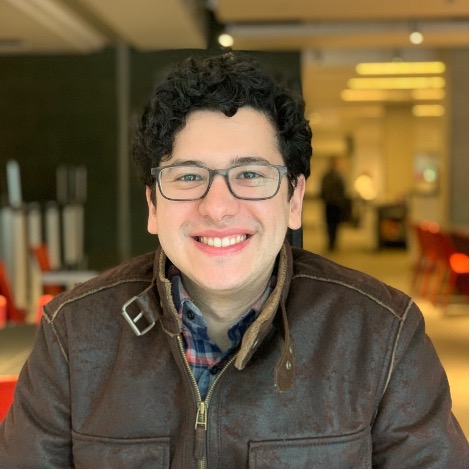March 2021 GPS Career Story: Dr. Manuel Ramirez Garcia on Becoming a Data Scientist
March 5, 2021
Graduate and Postdoctoral Success

Dr. Manual Ramirez Garcia
You’ve got ~ a minute or 350 words to give us your elevator pitch. Who are you? What are you all about?
Hello, my name is Manuel Ramirez Garcia and I am a data scientist. I graduated last year with my PhD in biomedical engineering from the University of Rochester. I studied ways to improve clinical outcomes in corneal transplant surgery. Roughly a year before I defended, I made a conscious decision to pursue a career unrelated to my research and leave academia. I knew I didn’t want to remain in academia, and the thought of working as a biomedical engineer in industry was losing its appeal to me. After much soul searching and self-reflection, I came to the conclusion that my post-PhD career should have the aspects I loved most about it and not the ones I didn’t. For me, these were the ability to function as both a scientist and an engineer, programming-heavy day-to-day tasks, and communicating technical ideas to audiences. After many informational interviews (and I do mean many!), I learned about the data science career path. I then spent many months preparing for it, and after over a year of on-and-off interviewing I landed my first job.
I’m currently employed through a recruiting firm as a contract data scientist for a large internet company. I have no regrets about pursuing my PhD or the route I took to get to where I am. I still feel like I’m this hybrid scientist/engineer, and that is one of the aspects I love most about my job. Before, I’d be running mechanical testing experiments or analyzing stress/strain data. Now, I continue to run experiments only it’s in conjunction with our sales and ad team, and I still write programming scripts to analyze data, only now it’s to create new business KPIs (Key Performance Indicators) for our revenue data. My years-long journey transitioning into data science was difficult, challenging and not for the faint of heart. But, in the end, I wake up every morning knowing I have a great day ahead of me, and it was all worth it.
How did you transition from academic training into the workforce? What were the most important things you needed to learn that you didn’t get in your graduate school training?
My switch into data science required me to learn the skills and tools used day-to-day by a data scientist. This included learning new programming languages, brushing up on my statistics, and familiarizing myself with machine learning (ML) algorithms I hadn’t used before. If I wanted to convince a hiring manager that I could do the job, I had to show them proof of me doing the job. I took it upon myself to demonstrate that I could hit the ground running day on day one. To this end, in my spare time I built and showcased multiple data science side projects. I was lucky enough to be selected for a summer data science fellowship, where I got experience collaborating with an actual company building a ML model for them. Through this fellowship, I learned the importance of focusing on the business or product aspect of data science, not just the technical nitty-gritty of it. Ultimately, a company’s motive is to make a profit. To drill down on this concept, I volunteered to help my brother’s family business automate some data cleaning tasks using ML, helping reduce labor costs and saving resources. My resume now appeared much more well-rounded with industry experience that I did not have in grad school.
Imposter syndrome? Yes, no, or ongoing?
Ongoing for sure. Some days are better than others, but if you trust your training (as a scientist), you’ll do better than you think. For example, having gained employment during COVID, I’ve not had the opportunity to meet my coworkers face-to-face, my training has consisted of reading through technical documentation and other people’s code on my own, all the while with the expectation to be productive. That sounds daunting! Lucky for me, I spent six years developing the skillsets I’d need to thrive in this kind of environment. As a PhD graduate student, we develop strong self-motivation and self-disciple muscles to overcome open-ended tasks with minimal supervision. Weekly journal clubs taught me how to read, interpret, critique and sometimes replicate highly technical work without having the authors in front of me. Meticulous note-taking cemented strong documentation habits needed when coding. I don’t have all the answers, but I know I can rely on my PhD training to help me learn new skills and get me through.
Dr. Manuel Ramirez Garcia presented his GPS Career Story on Thursday March 11, 2021 at 4 pm. Although you missed the opportunity to ask him questions, you can still watch his Career Story at the Graduate School's YouTube Channel. To find out when the next Career Story will be held, check our calendar.


